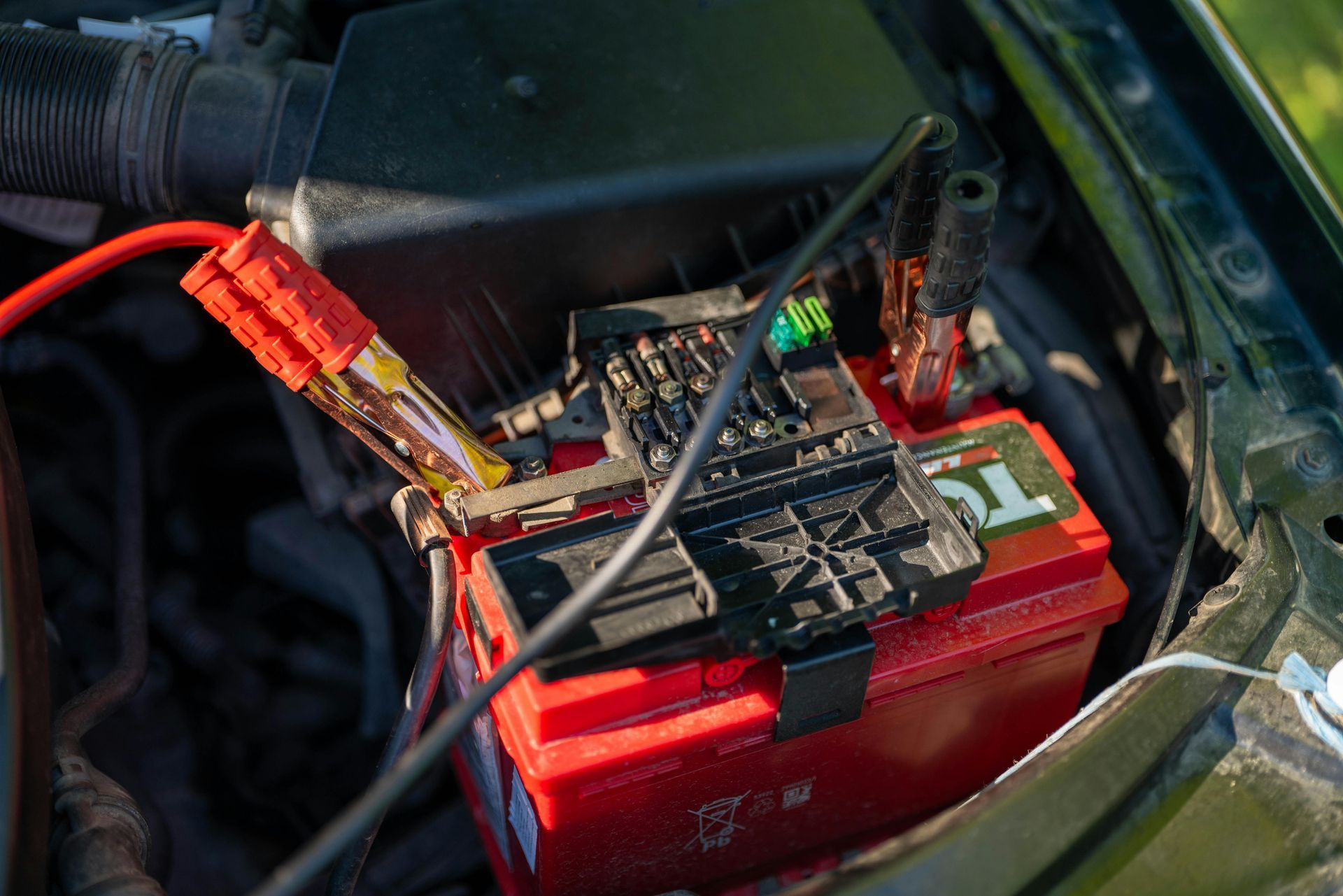Why are My Headlights Dim? 5 Problems and Solutions
Auto Shops Located in: Chapel Hill, Durham, Taleigh, Apex, and Cary North Carolina

Are your headlights leaving you in the dark? Dim, dead, or fading headlights are both terrifying and dangerous for drivers. Without proper repairs, you could find yourself facing a variety of problems—from a failed annual car inspection to serious accidents on the road. The auto mechanics at Chapel Hill Tire are here with a comprehensive look at dim headlights and what you can do about them.
Headlight Problem 1: Burnt Out Bulb
The most common problem that faces headlights is dim, dying, or burnt-out bulbs. Thankfully, this also comes with the most simple solution: bulb replacement. Much like the lightbulbs in your home, headlight bulbs need to be replaced every once in a while.
Headlight bulbs might need to be replaced more frequently if you tend to leave your headlights on during the day or if you regularly drive at night. For example, your bulbs might burn out more often if you drive for Uber, Lyft, or delivery jobs in the evenings. Older vehicles that have never had bulb replacements are also ticking time bombs for burnt-out headlights.
How can you tell when you need new headlight bulbs? In addition to noticing your headlights looking dimmer than usual, you can check for a burnt-out bulb with a few simple steps. Simply park your vehicle in a safe space and turn on your headlights. Then, step out of your car and check to ensure that both headlights are bright and functioning. When you notice one or both lights starting to dim, bring your car in for a bulb replacement service.
Headlight Problem 2: Lens Oxidation
Some drivers are surprised to learn that headlight dimming is not always caused by burnt-out bulbs. In fact, the lenses themselves may be to blame. Headlight lenses—the plastic pieces that cover the bulbs—are often made out of acrylic. This material is known for chemically reacting with the sun’s UV rays. Over time, your lenses can become oxidized—leading to a foggy, cloudy, or yellowed lens appearance. The opaque shade caused by oxidation does not let as much light pass through as clear lenses. This will leave your headlights looking dim, even if you have brand-new bulbs.
The solution here is simple: headlight restoration service. Using professional-grade tools and experience, your mechanic can address lens oxidation and help protect your headlights from future troubles. You can read our full guide to headlight restoration service here.
Dim headlights? Get a bulb replacement or headlight restoration at Chapel Hill Tire.
Headlight Problem 3: Wiring Troubles
Your headlight bulb is illuminated by an array of electrical components. In most vehicles, this includes a wiring harness and a fuse. These components provide the power needed to fuel your headlights. Wiring troubles can cause your headlights to dim, misfire, or stop working entirely. Wiring troubles are rare, but not unheard of. They also become more likely if you have tampered with your headlights recently or attempted any DIY repairs.
This headlight repair will depend on the exact nature of your wiring troubles. You may need a wiring adjustment, a new wiring harness, a replacement fuse, or another electrical repair. An experienced mechanic can diagnose your headlight troubles and work with you to create a repair plan.
Headlight Problem 4: LEDs vs. Incandescent Bulbs
Have you ever driven past someone with blinding headlights? Even without the brights on, some LED headlights can seem much brighter than traditional versions. As such, if you are driving with traditional incandescent bulbs, you might begin to think your headlights seem dim in comparison.
Why are LED headlights so bright? According to the U.S. Environmental Protection Agency and the U.S. Department of Energy, LED lights can appear brighter than incandescent bulbs without providing any extra light. Why? Traditional headlights have a softer, warmer, sometimes even yellowish hue. Meanwhile, LED lights emit a sharp white light with bluish tones. This color is harsher on the eyes, and it contrasts more starkly with the darkness of the night. As such, LED headlights can seem much brighter than incandescent bulbs—even when producing the same amount of light.
Of course, the brightness of a headlight will depend on other factors, including the vehicle make/model, the headlight lenses, the headlight shape, and more. Overall, the jury is still out on the effects of LED headlights.
- The pros: Some drivers favor the energy efficiency and longevity of LEDs. Others believe they may also provide more visibility on the road for drivers, even in cases where they do not produce extra light.
- The cons: Those opposed to LED headlights suggest that they cause more harm than good by creating a glare for other drivers, which could cause accidents and eye strain.
Regardless of your stance on LED bulbs, you can speak to your mechanic about alternative bulbs available for your vehicle if you are interested in brighter options.
Headlight Problem 5: Setting Configuration
Vehicles today often have several different lighting options for drivers to choose from. If you find that your headlights are too dim or have stopped working, take a moment to double-check your settings. Most new headlights adjust automatically unless they are otherwise configured. As such, many drivers “set it and forget it.” When an accidental bump or guest driver adjusts your lighting, you might not think to check the setting configuration.
While it might seem obvious, there is a chance that you have your fog lights on instead of your standard headlights. In these cases, a simple adjustment of your headlight settings should get them working again.
Headlight Repair at Chapel Hill Tire
When your headlights are leaving you in the dark, Chapel Hill Tire’s experienced auto mechanics can help. We offer all of the services needed to get your headlights working like new again—including bulb replacement, headlight restoration, and wiring services. Our mechanics are available through our 12 locations across the greater Triangle area, including Raleigh, Apex, Carrboro, Durham, Cary, and Chapel Hill.
Short on time? Our shuttle service makes it easier to fit headlight service into your schedule. Drop off your vehicle at Chapel Hill Tire, and we’ll take you where you need to go and bring you back when your car is ready. Make your appointment here online, or give your nearest Chapel Hill tire a call today to get started!















